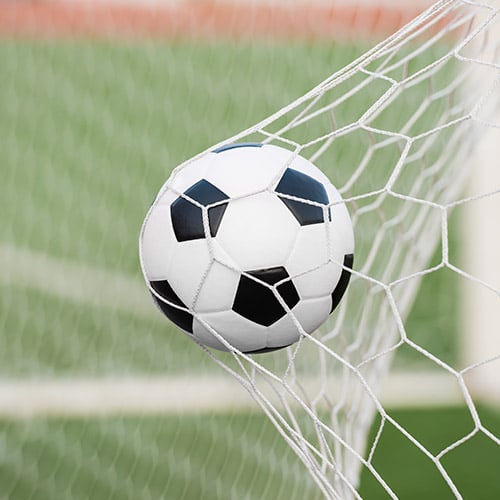Cognitive Load Theory plays a massive role in an athlete’s learning and performance. Having a better understanding of this theory will not only improve your athletes’ knowledge and understanding, but also how they behave in competitive situations. So, what do you need to know?
Well, we recently have been looking at Cognitive Load Theory from an emotional perspective. This led us to wonder: is there a relationship between emotion and cognitive load? How could this impact athlete performance?
How is Cognitive Load Theory linked to sports?
Working memory, which is where we hold and process new information, is central to Cognitive Load Theory. For learning to take place, this information must be passed into the long-term memory. However, the working memory has a very limited capacity – so, any information that does not get transferred into long-term memory is ultimately forgotten.
This has a massive impact on your athletes, especially when learning or perfecting skills. If an athlete is thinking about too much at once or trying to understand information from too many sources, this can cause their working memory to be overloaded. This is exactly what we don’t want.
Cognitive overload is mentally exhausting for athletes. Just as our bodies get tired when they are overworked, so do our minds. This can ultimately weaken your athletes’ ability to learn as they will struggle to remember the skills and techniques you are trying to teach them. This means that your athletes may forget crucial information which could have made a massive improvement to their performance.
The Catastrophe Theory and performance: How emotions affect performance
The Catastrophe Theory highlights the link between human cognition and emotion through arousal levels. This theory states that if cognitive arousal levels are too high (past the optimal point) this can cause a drop in performance. The only way for the athlete’s performance to recover is if they reduce their cognitive arousal, which can be done through calming techniques.
Emotions such as anxiety and stress are a kryptonite to cognition. This is because these negative emotions can increase arousal levels to a point that is too high. This causes athletes to take in more irrelevant information when learning and performing, therefore overloading their working memory. This means that athletes can struggle to recall crucial information, or ultimately forget it. Negative effects of this include:
- Decreased decision-making
- Decreased focus
- Lack of confidence
- An inability to focus on relevant cues
- An increase in mistakes
However, working at optimal arousal and anxiety levels allows athletes to remain within their zone of optimal functioning. Emotions such as determination and self-belief help them reach this.
In this zone, athletes have enhanced cognition, which aids their performing and learning. They are more likely to avoid cognitive overload thanks to selective attention. This gives them the ability to recognise relevant cues, meaning their working memory won’t be overloaded by irrelevant information and more knowledge can be passed into or retrieved from their long-term memory.
3 ways emotions can affect cognitive load
The influence of emotions on cognitive load is undeniable, especially in sports. Emotions can have both a positive and negative effect on an athlete’s cognitive load, and understanding these impacts are crucial for optimising an athlete’s performance. Let’s look at the three main impacts…
- Emotions as a source of extraneous cognitive load
Nerves are common in sports. The pressure to succeed, whether in front of an audience or during a match, can amplify stress levels. This heightened emotional state could flood an athlete’s working memory with self-doubt and distraction. If this happens, it can reduce the number of resources available to perform well.
When your athletes experience an excess of these emotions, it can create demands on their cognitive resources. Those become extraneous load in their working memory, taking up precious cognitive resources – this means that they will struggle to absorb new information that could be very helpful when competing.
- Emotions as a factor affecting memory
When your athletes are happy, confident and have high levels of self-esteem, it means their needs are met. These positive emotions could come from successful past performance or finally mastering a skill they had been trying to learn for a long time. But usually, it means some sort of goal has been achieved. Because of this, athletes have more space available in their working memory to focus on different things and expand their knowledge.
- Emotions and Achievement Motivation Theory
Emotions can significantly influence motivation. Athletes who possess a "need-to-achieve" mindset tend to cultivate emotions of pride, satisfaction and determination. Consequently, they exhibit behaviours that embrace challenges, demonstrating high levels of persistence and a greater willingness to learn and enhance their cognitive abilities.
On the other hand, athletes with a "need-to-avoid-failure" mindset have a different motivational approach. They tend to display avoidance-seeking behaviour driven by their fear of failure and dislike of shame. These individuals often experience negative emotions such as worry and stress, which can hinder their willingness to explore new techniques and skills. They fear making mistakes and as a result, become reluctant to try new things and expand their knowledge.
Final Thoughts
Understanding how emotions interact with cognitive load is essential for optimising athletes’ performance. By managing and harnessing emotions effectively, coaches can help their athletes better regulate their cognitive load. This will allow them to enhance their overall athletic abilities and success and empower them to unlock their full potential so they can perform at their best.





